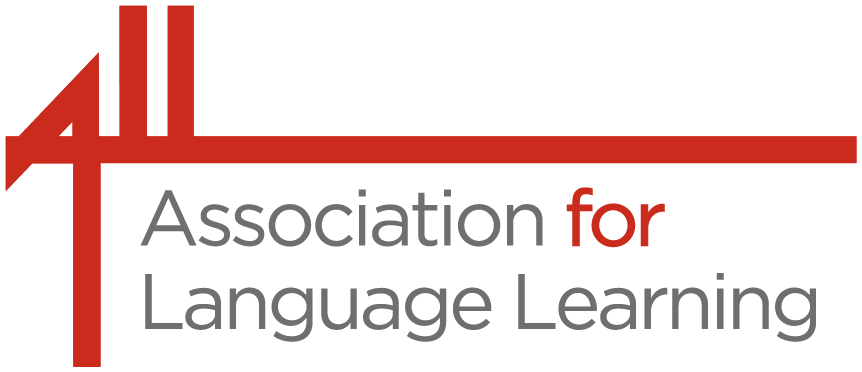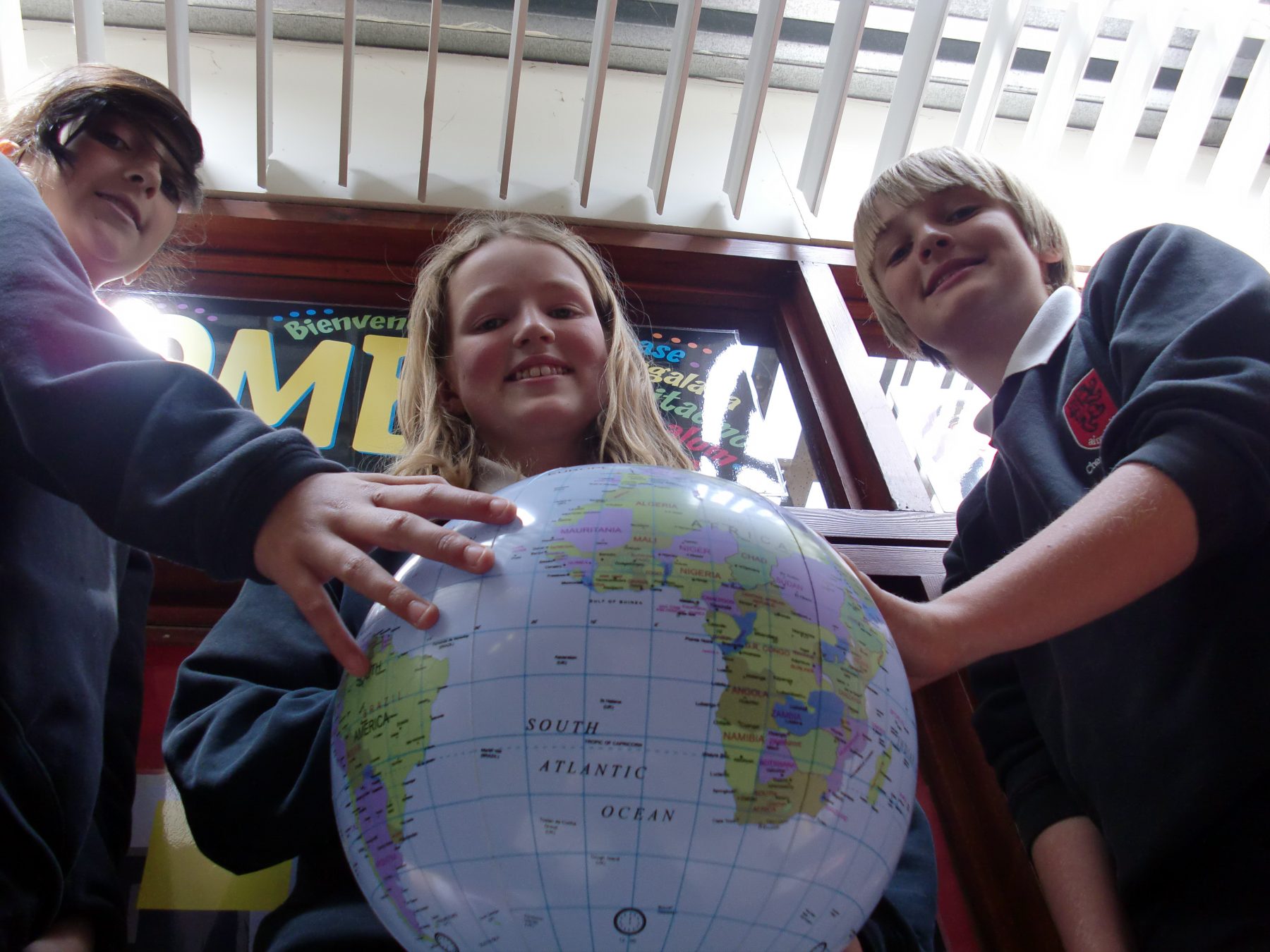Languages Today, issue 12: Autumn 2012 – Marianne Smedley
We investigate the array of tools and support available through the British Council that can evoke compelling learning experiences in your classroom
Imagine having a native speaker of the target language in your classroom, on hand to bring learning to life. Or setting up a video link from your school to one in Kabul. These are just two of the many opportunities provided by the British Council, which situates language learning in a powerful cultural context.
The British Council is the cultural arm of the Foreign Office and its mission is to create international opportunities for people in the UK and abroad, and to build trust between them – something it terms ‘cultural relations’. It works across the globe to promote the English language and various aspects of British culture, for example the arts, education and society. Under education, the British Council runs its schools programme, and here we profile the opportunities and resources available through the organisation for both language learners and teachers.
Vicky Gough, advisor at the British Council, says: “Our strategy for working with schools has two main aims. The first is about enriching the curriculum through collaboration between schools, teachers and head teachers. The second regards developing children as global citizens – both in the UK and in other countries.”
There are four main ways of meeting these aims, says Vicky. “Firstly, we create school partnerships – which might be face-to-face or online, and can be arranged through the Connecting Classrooms or Comenius programmes. The second way is through visits and exchanges. Thirdly, we encourage schools to gain accreditation through the International School Award. Finally, there is professional development, and we provide CPD for teachers to enable them to deliver a global dimension in schools and undertake in-service training and job shadowing in Europe.”
Resources for teachers
Schools Online
Schools Online is the web-based information source that underpins all of the British Council’s work for schools, and is the gateway to all these opportunities. Schools Online contains Global Learning Resources – activities that teachers can do in their own schools or with a partner school in another country. There is also a database of more than 40,000 schools and colleges across the world that are interested in starting a school partnership. “Schools can search for a partner school in another country, as well as get advice about how to make contact and establish links,” says Vicky.
Connecting Classrooms
Funded by the British Council and the Department for International Development, Connecting Classrooms is a worldwide programme designed to equip teachers to help young people learn about global issues and give them the skills they need to work in a global economy. There are four parallel strands to the programme: three that relate directly to schools – professional development, school partnerships and accreditation – and one that focuses on policy makers.
Once a school has established a relationship with another via the Schools Online website, it can apply for funding from Connecting Classrooms to visit its partner school and for its partner to make a return visit. “To qualify for a grant, schools need to demonstrate a strong commitment to their partnerships and to embedding global learning and the international dimension into their curriculum,” says Vicky.
Under the programme teachers can also take advantage of online and face-to-face CPD courses that will enable them to work effectively with international partners and to introduce global citizenship in their schools. “The CPD courses are designed for all levels of experience: teachers who are new to working in an international context and those with plenty of experience of working with global themes,” she says. “There’s something for everyone.”
International School Award
Schools that are part of the Connecting Classrooms programme are eligible to take part in the prestigious International School Award, run by the British Council. The scheme provides recognition for teachers and their schools working to instill a global dimension into the learning experience of young people. See below for two case studies of schools that have achieved accreditation.
Foreign Language Assistants
A language assistant from the British Council is the ultimate authentic and interactive learning resource. As Vicky says, “Language assistants bring the language and culture of their country into the class. They make learning more relevant, fun and real while supporting teachers and promoting intercultural understanding.” The assistants are usually undergraduates studying English and are from countries such as France, Germany, Russia and Spain.
The process of introducing a language assistant into a classroom is simple and cost-effective. The gross cost to a school is £7,030 per academic year, but the cost and the assistant can be shared by up to three schools. He or she must be contracted to work 12 hours but can be employed for up to 18 on a pro rata basis at £16.74 per hour. The assistant is responsible for arranging his or her own accommodation – however, schools are asked to make temporary arrangements when they first arrive. Schools can apply online for an assistant, with applications opening each October.
Marianne Allen, languages teacher at Springfield Lower School in Kempston, describes the experience of working with a language assistant as “wonderful”. She says, “It’s great for the children as they have a real Italian speaking on site. She doesn’t speak any English to them so they have to practise their Italian with her. “I don’t know how we did languages without an assistant. If you can, get one.”
Comenius and eTwinning
The Comenius Programme is perhaps best known for funding school and FE college partnerships across Europe, with grants of up to £25,000 available. However, it also enables staff to undertake CPD visits overseas – attending conferences or job shadowing, for example – as well as offering ‘Comenius assistants’ – trainee teachers from other European countries who can help bring the international dimension to the classroom. Complementing Comenius is eTwinning, an online resource that enables schools to find partners across Europe and run joint projects – eTwinning is free to use and can be the perfect starting point for embarking on a ‘European journey’.
Resources for students
Global learning
Another way to bring culture to life is through a series of films the British Council has made with the BBC, called ‘Schools World Service’. The films – suitable for both primary and secondary learners – focus on a current topic and are made through the eyes of children. “The idea is to raise awareness of international issues and their effects on children,” says Vicky. “There’s a film about children going back to school in Tripoli after the war; there’s one about the families of people living with Alzheimer’s in the UK; and another set in an Indian village where the children get a computer for the first time.”
Mandarin Speaking Competition
There is nothing like a prestigious competition to motivate students and teachers, and for the tenth year running, individuals and groups from secondary schools can take part in the HSBC / British Council Mandarin Chinese Speaking Competition, with a grand final at the British Museum in February 2013. The winners will take a cultural trip to China in April 2013.
Language competitions
‘Warm-up for the Games’ took place in the run-up to the 2012 Olympics. Students were asked to make a poster or PowerPoint presentation about ‘Welcoming the world to London and the UK’, ‘Olympics values’ or ‘Olympics truths’. “Schools were often already covering the Olympics, but we helped them find a partner school that they could do Olympics projects with,” says Vicky. “We had over 3,000 schools sign up and were delighted by the demand.”
Case study: Royal Wootton Bassett Academy
“International work is a powerful way of making our school different”
When Rob Ford, Director of International Learning, arrived at Royal Wootton Bassett Academy three years ago, it had already obtained full British Council International School Award accreditation. In 2011 it was reaccredited, this time with an outstanding commendation, and is now a British Council ambassador.
“Unfortunately, there were students whose parents were out in Afghanistan and Iraq,” explains Rob. “So we had a world conflict on our doorstep. The BNP wanted to come here to picket and hand out leaflets, while an extreme Islamic group wanted to march through town. My sixth formers wanted to talk about these issues, about soldiers being posted abroad, and about human rights, democracy and freedom.”
Various methods have been used to build relationships with schools across the globe, with technology such as video conferencing being indispensable. “One of the most powerful video conferences we did was with children in Kabul,” says Rob. “They told us how they walk 15 miles barefoot to school and gave examples of girls having their fingernails cut off because of nail varnish.”
With help from Schools Online, the school also took students to Quebec in Canada to learn French and has built links with a Dutch university’s teacher training department.
“Every head is investigating how to make their school different – international work is a powerful way to do this,” says Rob. “Our excellent range of international activities was pivotal to our outstanding Ofsted grades – we received a ‘1’ in every aspect.”
Case study: Southroyd Primary School
“Our children have grown as global villagers”
Since 2004, international collaboration has been so much a daily part of the lives of teachers and young people at Southroyd Primary School that it has achieved the British Council’s International School Award.
The Leeds school first embarked on a global school partnership with Bachpan School in Gujarat, India, and went on to develop links with Rookdale Primary School in South Africa and a primary school in France. It found the partner schools through the eTwinning network, managed by the British Council.
Dave Manton, Southroyd’s International Co-ordinator, has seen a dramatic transformation in its students. He says, “Our children have grown as global villagers, with empathy for life in different cultures, strategies towards promoting global sustainability, strong ideals regarding fair trade, and fervent opinions on social injustice. The transition has been striking.”
The benefits have been mutual, as Bachpan School in Gujurat reports: “Students are more confident, teachers and students understand global issues better, and their communication skills have improved. It used to be ‘me and my’, now it is ‘we and our’.” So many teachers are convinced of the project’s value that it is rooted in all aspects of the curriculum, Dave maintains. “In a UK school with little multicultural diversity, the partnership has enabled the minority of students from different ethnic backgrounds to celebrate their nationalities and enabled the school to experience the benefits of living in a multicultural society. It is hard to measure the impact of the incredible enrichment that the school partnership has brought about.”

